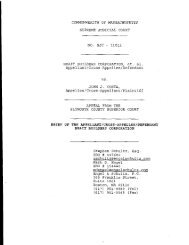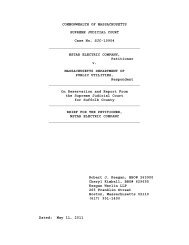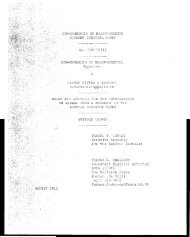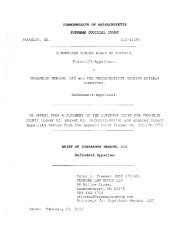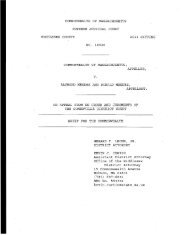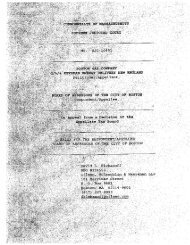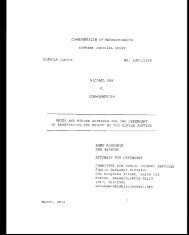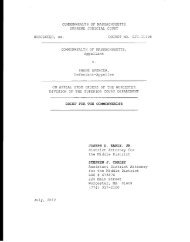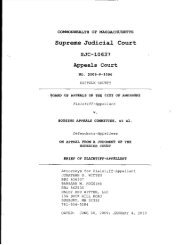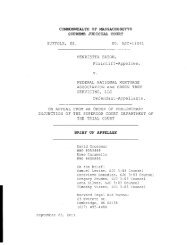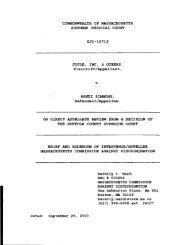Appellant McCowen Brief - Mass Cases
Appellant McCowen Brief - Mass Cases
Appellant McCowen Brief - Mass Cases
You also want an ePaper? Increase the reach of your titles
YUMPU automatically turns print PDFs into web optimized ePapers that Google loves.
to point out to the jury that the party with the burden<br />
of proof has ... decided not to preserve evidence of that<br />
interrogation in a more reliable form, and I they may<br />
consider that fact as part of their assessment of the<br />
less reliable form of evidence that the Commonwealth has<br />
opted to present.<br />
a. at 449. Nearly fifteen years after Diaz and six<br />
years after DiGiambattista, <strong>McCowen</strong> respectfully<br />
suggests the time has come: the fruits of an unrecorded<br />
interrogation should be inadmissible at trial.<br />
Alaska was first to require electronic recording in<br />
felony cases. Stephan v. State, 711 P.2d 1156 (1985).<br />
Since then, six states and the District of Colurnbia have<br />
required police to record interrogations in at 'Least<br />
some criminal cases. Most allow police to record<br />
surreptitiously. where permission is requirrtd, most<br />
suspects consent, If the ihnterrogation is lakful, no<br />
valid challenge to admissibility exists and a major<br />
cause of wrongful convictions is eradicated. The Alaska<br />
Supreme Court noted: "[a] recording ... will aid law<br />
enforcement ... by confirming the content and the<br />
voluntariness of a confession, when a defendant: changes<br />
his testimony or claims falsely that his constitutional<br />
rights were violated." Stephan, supra at 1161. An<br />
objective recording makes it unnecessary to rely on<br />
selective , potentially biased accounts of what occurred.<br />
It opens police practices to scrutiny and renders<br />
-35-



